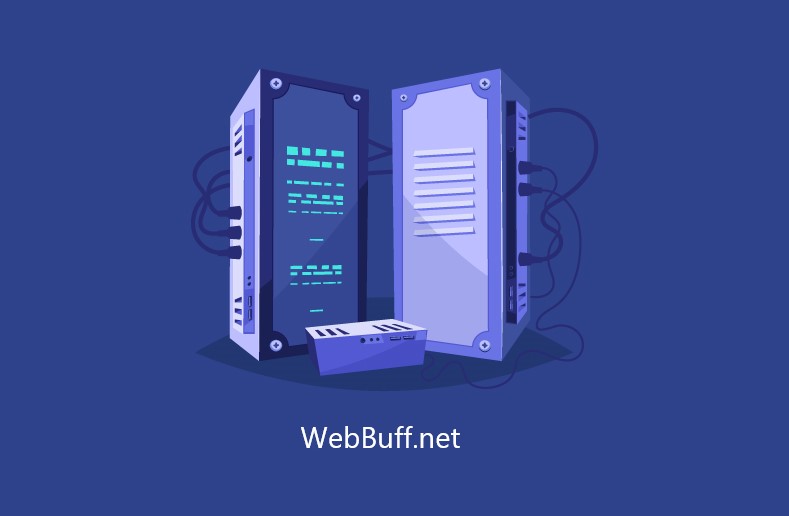What Is Hosting?
Have you ever asked yourself what is hosting? Probably not—until you needed it for your website design. In this WebBuff article, join us to learn everything you need to know about web hosting.
A website consists of hosting and its associated domain. The domain is the unique address used to get to the website—the actual string of characters that people type into their web browsers. However, the files, pictures, and everything else have to be stored on some sort of storage medium like a hard drive or computer.
Similar to a personal computer’s various drives, which store information, the storage space of a server can also be partitioned into numerous smaller parts, with each one being called a “hosting.” Web hosting providers then rent these hosts for a specified time frame.
The term “hosting” means the amount of space needed to save the data of a website.
What is a server?
The server is a powerful, always-on computer that is always connected to the Internet 24/7. The different types of hardware and software resources loaded onto each server include processors, RAM, hard drives, operating systems, and more.
In most cases, there are numerous servers found in a specialized facility called a data center. These buildings are specially designed with special features and facilities to ensure the peak performance and security of the hosted servers.
Just like regular computers, servers will not run without an operating system.
Server operating systems can be broadly categorized into two types: Linux and Windows.
The Importance of The Type of Server Used
It is important to realize that any interruption in your server’s internet connection, no matter how short, or any failure of hardware or software will make your website inaccessible to end-users. Therefore, it is of great importance to choose a reliable hosting service and to carefully scrutinize the details of your hosting package.
Types of Hosting
1. Shared Hosting
As the name implies, shared hosting involves hosting multiple sites on a single server. Technically, a server is partitioned into several small units, each assigned to a personal site. This type of hosting, because it is comparatively less expensive, is particularly in high demand among recently created or low-volume sites. Furthermore, since subscribers only pay for what they need or want, it is a very cheap solution for small businesses.
However, shared hosting has its own set of disadvantages. It is more prone to attacks compared to other hosting services because many hosts share the same server resources. This shared structure can result in a higher number of requests being sent to the server, which may eventually lead to a less efficient website. In addition, multiple hosts on the same server present a security risk, as vulnerabilities in one site may inadvertently open up the server and its neighboring websites to a plethora of threats.
2. Semi-Dedicated Hosting (VPS)
A Virtual Private Server, commonly referred to as VPS, is hosting where one physical server is divided into multiple independent compartments through the process of virtualization software. Comparatively with shared hosting, VPS hosting delivers improved performance along with increased security.
Each section functions as a standalone server, granting users the ability to install tailored software and allocate resources according to their unique requirements. Users have the capability to access their VPS, oversee resource usage, and manage the server as needed.
VPS servers, while located on the same physical machine, operate independently, enabling them to run different operating systems and diverse software setups. Nevertheless, VPS hosting requires a high degree of expertise and experience to be able to install an operating system and carry out all necessary configurations.
3. Dedicated Server
With this approach, a single website is served by its own dedicated server—meaning it is exclusively housed on a single machine. This type of hosting comes with quite a lot of rental costs, and it suits large, high-traffic websites that place the greatest importance on both security and performance.


No comment